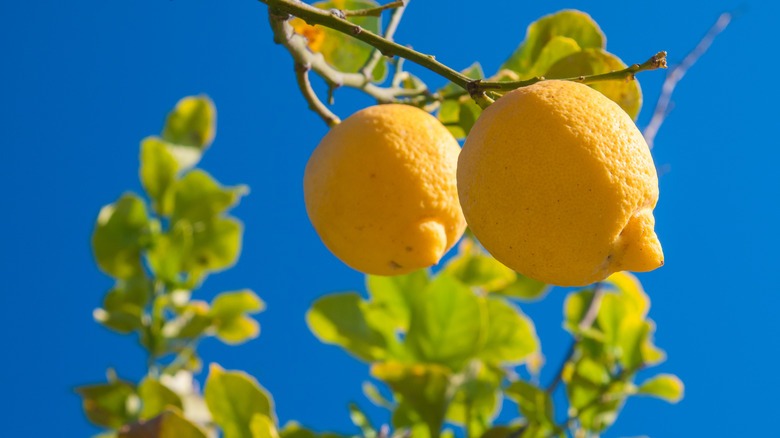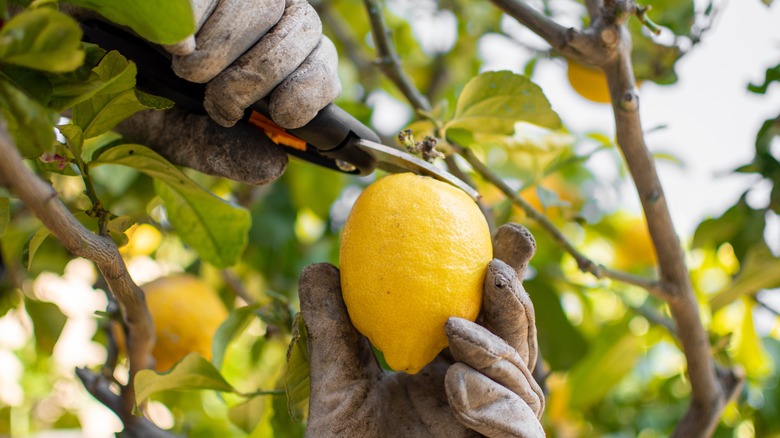The Mafia Began As A Task Force To Protect Lemons
Lemons have given us all sorts of lovely things, from tasty drinks to optimistic adages about life, but what not too many people realize about lemons is that they also gave rise to the mafia — specifically, the Sicilian mafia. As early as the 1700s, lemons exploded in popularity, namely due to their vitamin C being crucial in scurvy treatment. By the end of the 19th century, Sicily was annually exporting more than 2.5 million cases of lemons to a single city in the USA — New York.
Of course, with so much importance placed on the humble lemon, this fruit now needed to be protected from thieves and salesmen with ulterior motives. As such, lemon farms hired what were essentially security guards. Over time, the contracts and money involved in successful farming (not to mention the hierarchy of workers) led to the creation of the Sicilian mafia. To be clear, in that era, the term 'mafia' only referred to confronting and thwarting criminal activity, not involvement in the crimes themselves, but that soon changed.
Lemon protectors found themselves threatened by government control
Unfortunately for the original Sicilian mafia, members' duty of protecting lemon crops was stripped away upon Sicily's unification with Italy in 1860. As the Italian government struggled to take control of the island, the mafia evolved into an underground operation that used violence as necessary to maintain businesses.
In a sudden change of events, part of this violence soon turned back on the farmers themselves, who were forced to pay more and more for the mafia's protection. This kind of extortion, paired with the ever-unfolding complexities of mafia hierarchy, more closely resembles the mafia we picture today.
What's more, because the mafia had Sicily's lemon industry in its grasp, members essentially controlled the market. They could resell the lemons themselves, or even create artificial shortages to drive sales by stashing fruits away until prices were more favorable. Regardless — where the money was, the mafia trailed closely behind –- and in Sicily, that money was yellow and sour.
Where the lemon trade goes, the mafia follows
Though the United States has never claimed to produce the most lemons in the world, the country came onto the lemon-growing scene somewhere around the turn of the 19th century. American lemons became a competitor for Sicilian lemons when Sicily suffered a drought, and mafia members were looking to maintain control over the lemon market.
Naturally, fragments of the Sicilian mafia relocated to various major cities in the United States where they quickly became involved with bootlegging and other Prohibition-era activities. Later, mafia members entered the realms of gambling and money laundering, all while continuing to offer their protection services to businessmen.
Over the course of the next several decades, Sicilian mafia members teamed up with other Italian immigrants (and even immigrants of other ethnicities) to create a new version of the mafia that was distinctly American. Long story short, while it may seem bizarre to think lemons' and the Sicilian mafia's histories are so closely entwined, history often proves stranger than fiction, as the old adage goes.



